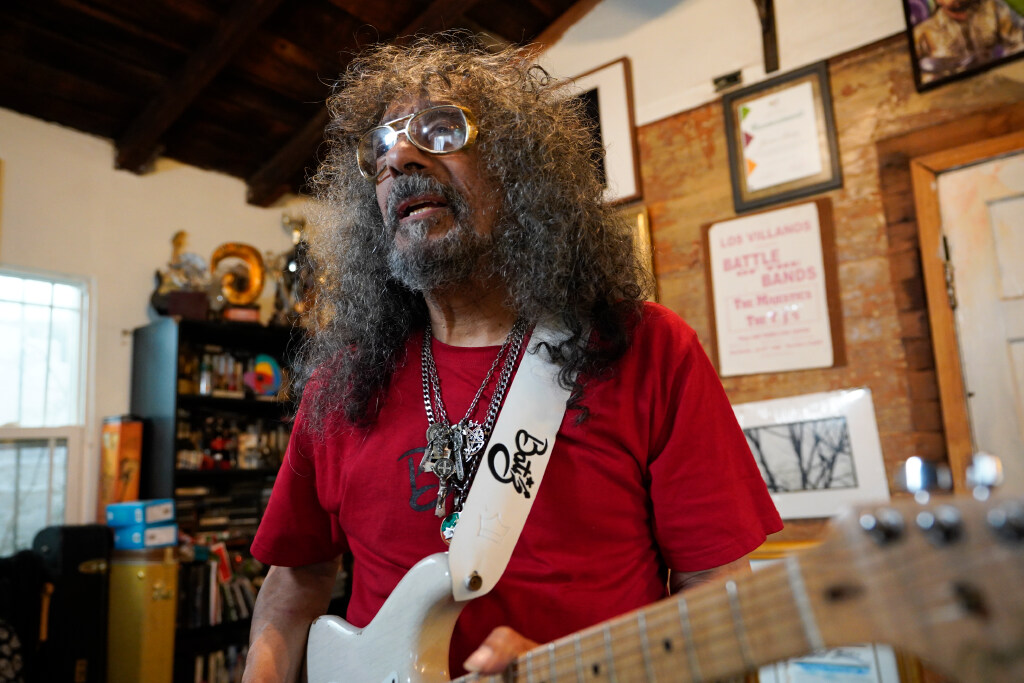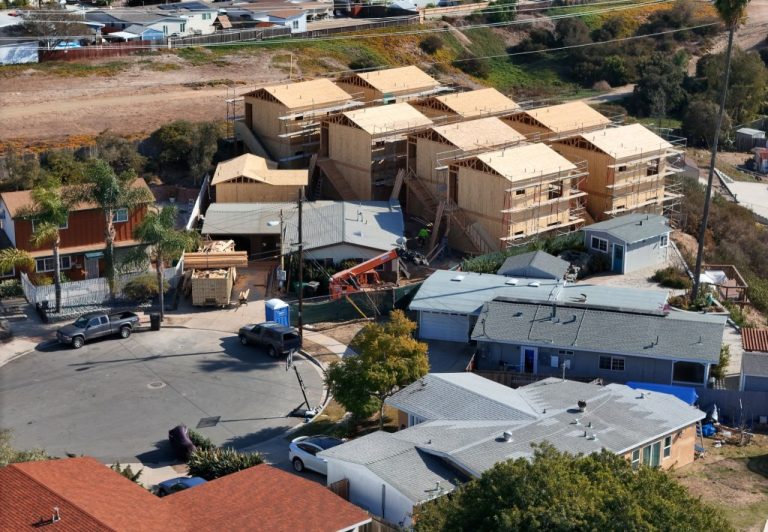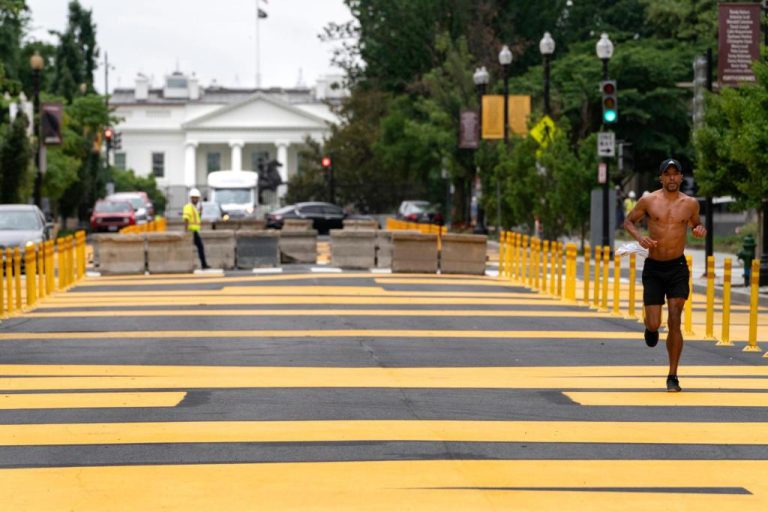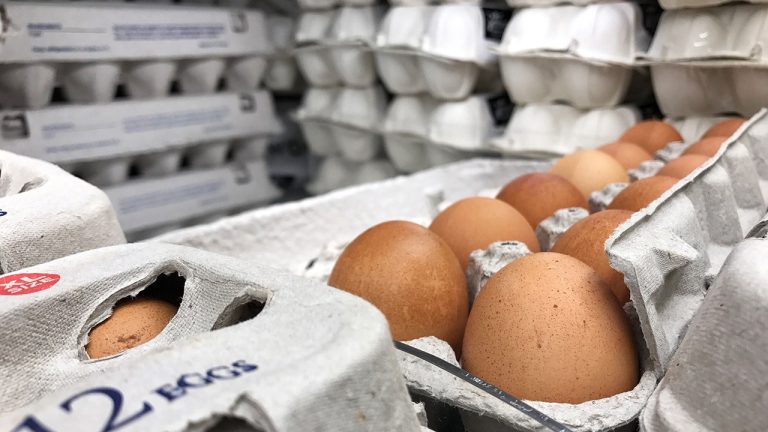
Javier Bátiz, the Mexican rock ‘n’ roll pioneer who was a key mentor to the teenaged Carlos Santana in the 1950s in the vibrant Mexican border city of Tijuana, has died at the age of 80. Long hailed as “the father of Mexican rock,” he died Saturday in the same Tijuana home where he was born on Rampa de Javier Bátiz, a street renamed in his honor in 2015.
(new Image()).src=”https://capi.connatix.com/tr/si?token=ff7d6580-0da6-49f8-9de1-91b12af445a6&cid=1ffe15d6-eb53-11e9-b4d2-06948452ae1a”;
cnx.cmd.push(function() {
cnx({
playerId: “ff7d6580-0da6-49f8-9de1-91b12af445a6”
, mediaId: “f63e1af0-f220-4cda-a4b0-c912ad769b54”
}).render(“47c1b3a211454a08880d696d413c07ca”);
});
His death was announced Saturday in a social media post by his wife, Claudia Madrid, who periodically drummer in Bátiz’s bands.
“Dear friends and family, I want to tell you that our dear and beloved, my husband Javier Bátiz passed away today,” Madrid wrote in Spanish. “His legacy and music will remain here forever. I love you, my love. Fly high, my angel.”
No cause of death was disclosed for the veteran guitarist, singer, band leader and songwriter. He had been facing unspecified health issues, according to a statement issued by Tijuana Mayor Ismael Burgueño, who last month joined other government officials to present the musician with the keys to the city.
In his statement, Burgueño hailed Bátiz as: “a proud Tijuana native, (who embodied) a legacy of struggle and perseverance, proof that if there is a will, there is a way.”

Hearing Bátiz play and then joining his band, The TJ’s, served as a double epiphany for Carlos Santana, who grew up in Tijuana and was 12 when his mother took him to hear a performance by Bátiz in one of the city’s parks. Santana began taking guitar lessons from Bátiz soon thereafter and joined The TJ’s, initially as the band’s bass guitarist.
“That moment I heard Javier in the park was another of those gifts from my mom,” Santana said in a 2023 San Diego Union-Tribune interview. “She grabbed me by the hand and took me to the park. And once I heard the sound Javier had I knew, right then and there, this was what I would be and that this is all I would be.”
The admiration was mutual.
“Carlos took my music, the way I play, around the world and became very famous and accepted. I’m so blessed he did,” Bátiz said in a 2022 Union-Tribune interview. “My life is centered around my guitars, my wife, and me. I play every night and the guitar is like my third arm.”
Bátiz was born Javier Isaac Medina Nuñez on June 3, 1944, in the Tijuana neighborhood of Colonia Altmira. The border city’s proximity to San Diego gave him good access to the rock and blues he would devote much of his life to performing. He learned his first guitar chords as a child from his widowed mother.
He began performing music professionally in Tijuana at the age of 12. Bátiz formed his band, The TJ’s, in 1957, and specialized in playing blues classics by such towering American-music pioneers as B.B. King, Fats Domino, Howlin’ Wolf, Chuck Berry and Ray Charles.
“We played everywhere, including at Battle of the Bands in San Diego, National City and Chula Vista,” Bátiz told the U-T in 2022. “And we always won! We were a bunch of kids, but we were really good.”
Bátiz made an impact visually as well as sonically.
“He looked like Little Richard and played guitar like B.B. King,” Carlos Santana recalled in a 2013 U-T interview.
In 1963, Bátiz scored his first hit with a cover version of Chuck Berry’s “Memphis, Tennessee.” He moved to Mexico City that same year to become the lead singer in the band Los Rebeldes del Rock. But their style was more pop-oriented than his and the pairing was a brief one.
Bátiz then established himself as an artistic force whose impact on the budding Mexican rock scene was formidable. Doors’ singer Jim Morrison, whom Bátiz befriended in the mid-1960s at the Whiskey A Go-Go in Los Angeles, went to hear him perform several times in 1969 when the Doors performed a series of concerts in Mexico City.
Besides Santana, other young musicians of note who cut their teeth playing in Bátiz’s bands included his sister, singer Baby Bátiz, bass great Abraham Laboriel, and drummer Fito de la Parra, who would rise to prominence in the late 1960s with the California blues-boogie band Canned Heat, which performed at the 1969 Woodstock festival.
De la Para had drummed in Bátiz’s band, The Famous Finks, a name partly inspired by James Brown’s backing band, The Famous Flames. In 2015, Bátiz was featured on the belatedly released album, “Canned Heat Presents the Javier Bátiz Sessions, 1969.”

Frustrated by the musical conservatism in Mexico City, Bátiz moved back to Tijuana in 1970. He was nicknamed El Brujo (“The Warlock”) and made at least 30 albums, including 2008’s “El Brujo USA.” He designed his own electric guitars and recorded an array of songs that are considered foundational to Mexican rock. The subject of a film documentary, Bátiz joined his former protégé, Santana, for a seven-city California concert tour in 1987.
But the accomplishment Bátiz was most proud of was teaching music to countless students over the decades in his Tijuana home, which he bought after his mother died. Bátiz had more than a dozen students of all ages.
“I teach them to play the blues. Anyone who wants to learn from me, I teach them,” he said in 2022. “That’s what I did with Carlos (Santana), and that’s what I still do.”
Bátiz credited his longevity to his healthy diet and the fact that he didn’t drink alcohol or smoke.
“When I play music, I sing, scream and take you to Mars,” he said. “I’m so in love with music that I don’t want to miss a second of it. I want to die on stage!”
Bátiz’s most recent San Diego performance took place May 1, 2022, at Winstons in Ocean Beach. He was scheduled to appear, but not perform, tonight as a special guest on the “Tijuana Con Todo” TV show at Tijuana’s Centro Cultural. He recorded a live album at that venue in 2017.
Bátiz is survived by his wife, his sister, his daughter, Charleena, and several grandchildren. No services have been announced yet.






